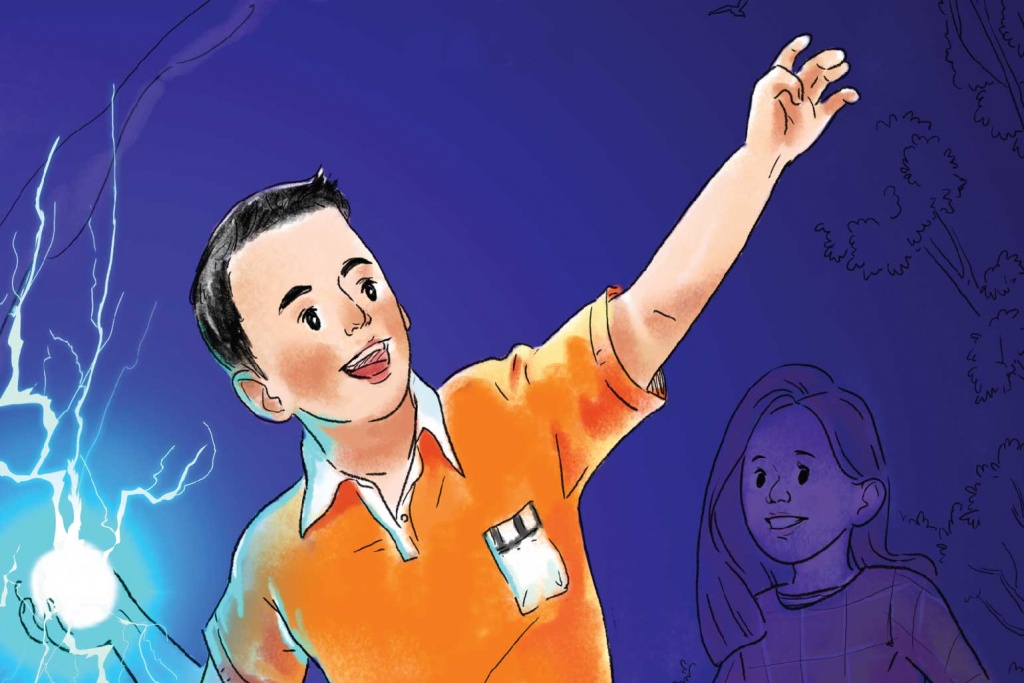After local author Mera Malik went through a breakup with her longtime companion, she got to work on what became her just-released children’s book, “Om The Enchanted: Big World, Little Om.”
Malik’s debut book discusses the responsibilities and feelings that come with living in nontraditional households, such as LGBTQ families.
Malik wrote that the world she wants to live in and raise children in “doesn’t discriminate when it comes to love or family; a world where everyone’s story has power and importance, where hearts and character are more important than skin color and gender.”
PGN: You and your partner were together nine years, but that ended due to discrimination she faced in her community. Can you talk about what happened?
MM: My partner comes from a broken family and is close to her mother. Her mom is very old-fashioned and never understood our relationship. She also had friends who were against it. Toward the end, her mother gave her an ultimatum to pick between her or me. Obviously, she picked her. We were happy. Then one day, we weren’t. The woman I loved, once sure and calm, became plagued by societal pressures on who she was supposed to be. The woman society expected her to become — straight, real, “normal” — eroded the hopes we had for a future together. Whereas I could look at a situation and vow to change it from within, she could only vow to change herself to fit the mold. She experienced such anxiety that she could not healthily function within our relationship, and after agonizing months of self-denial, she left me to be with a man.
PGN: You have children. Has any discrimination been leveled at your children?
MM: My kids did not face any discrimination because of my sexual orientation. They want me to be happy and wouldn’t care about what people say.
PGN: How did the end of your last relationship coincide with this book?
MM: My partner and I were toward the end of our relationship when I envisioned this book and its projects. Her reasons for leaving included her concern for our child, and how he might react to learning about our relationship — and ultimately her concern about what people would say. The book, in essence, was borne out of that split and is a direct reaction to the breakup of our relationship. It was meant to be a tool for our child but, perhaps more importantly, a resource for adults to teach their young children about the importance of love. I want to represent real life, with all its challenges and possibilities. Even if my story reaches one person, one family or one child, it will be a success in my eyes.
PGN: Why a children’s book?
MM: As a parent, your number-one priority is your children. How they react to, adjust to and are affected by their environment is of paramount importance. I thought a book like this could help our young child and provide a resource for other parents in similar situations. Children are naturally loving, and if they’re taught that love comes in different forms, then we’re likely to address the horrors and disappointment of gay adult interactions in a constructive, positive way.
PGN: Because even though it is “better,” it is still a struggle …
MM: There are still kids every day getting bullied for their family dynamic, being teased or stereotyped by the way they dress, picked on just for the way they look. This idea that kids must shrink to the size they are made to feel is a disservice to the children. Children are brave, smart and creative when we give them the tools. What I want to create is a tool for parents to show kids that families and lifestyles, colors and shapes, these things aren’t one-size-fits-all, and friends come in all different packages. When met with love and kindness, all barriers can be broken.
PGN: Writing about living in nontraditional households as you do, you’ve created something fantastical — Walter Mitty-ish, but pragmatic — where your main character, an 11-year-old, uses his vivid imagination to cope with, instead of run from, life’s challenges. How did you create this?
MM: I wanted to empower children — to provide them with tools and information to become compassionate adults. “Big World, Little Om” is a project dedicated to showing how wonderful, but sometimes challenging, the lives are for unique families. It can be a child who has a disability, a refugee family or how children cope in families going through a divorce. I’m not excluding anyone. I want these kids to see themselves in media in a positive, uplifting way.
PGN: I know you are working on a Big World app. What else do you have in the works?
MM: Along with a school workbook and the Big World app that will help children learn to recognize, label and regulate their emotions through game play, I am working on a social-media app that uses a different social hierarchy to promote cooperation over competition and compassion over cruelty, and an animated cartoon series.
PGN: Tell me about how you take an LGBTQ story and make it intersectional.
MM: Whether you’re discriminated against because of your race, gender, sexuality, physical or mental disability or religion, discrimination is a terrible thing to experience and feel. Even if you aren’t gay, you can relate to the experience of gay people because you yourself have experienced it and know what it feels like. As such, I think this book has the capacity to transcend the boundaries we’ve created through these labels.
